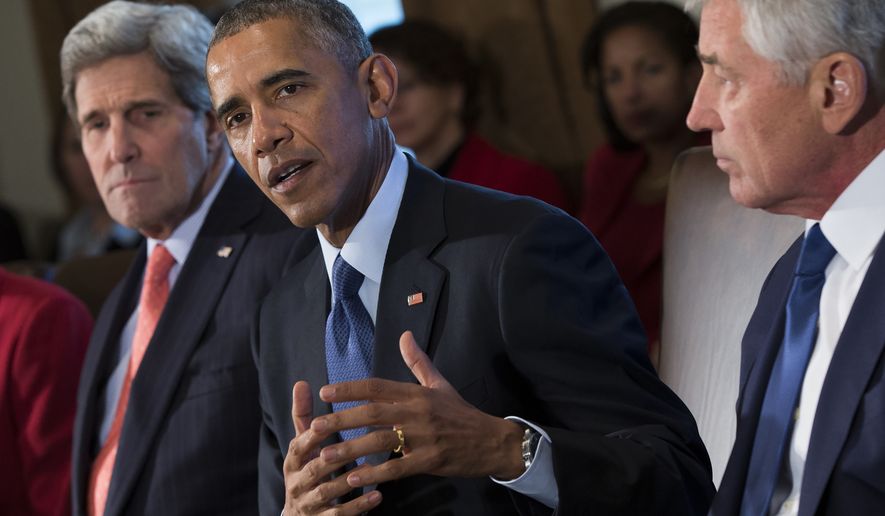The same administration that lost hundreds of millions of dollars on ill-fated green-energy investments now says it wants to “protect taxpayer interests” by pulling $1 billion in federal funding from a leading clean-coal project in Illinois — a project President Obama once described as “the future of coal in the United States.”
Mr. Obama’s Energy Department this week announced it will no longer support the FutureGen clean-coal facility in Illinois. The troubled project — which was nearly killed by the Bush administration after costs soared, revived with stimulus package money in 2009 and finally received necessary environmental permits last fall — now will be shuttered.
Energy industry leaders on Wednesday blasted the White House for dealing what they call a serious blow to clean-coal research in the U.S.
The administration has specifically cited FutureGen and programs like it as a way power producers theoretically could comply with stringent new Environmental Protection Agency mandates on carbon emissions. FutureGen would have used carbon capture and sequestration (CCS) technology, a process that traps the carbon dioxide released when coal is burned.
Administration officials, from Mr. Obama to Energy Secretary Ernest Moniz and many others, have cited CCS as a promising way to continue burning coal while still reducing carbon emissions.
But this week’s action, critics say, casts doubt on the sincerity of the administration.
PHOTOS: See Obama's biggest White House fails
“This decision cannot be reconciled with the administration’s proposal to require CCS as the only acceptable technology for any new coal-fueled power plant in the U.S.,” said Hal Quinn, president and CEO of the National Mining Association. “Last month in his State of the Union, the president called for American leadership on addressing climate change. [The administration’s] decision signals a retreat from a transformative technology solution.”
Energy Department spokesman Bill Gibbons said the project had provided useful insights on carbon sequestration, but ultimately funding would be suspended so taxpayer money didn’t go to waste.
“While this is an unfortunate outcome, the department acquired valuable information and tangible benefits from the work accomplished to date,” he said in a statement.
The Illinois facility was conceived and overseen by the FutureGen Alliance, a coalition of leading power producers and utility companies. The organization says federal money was a key component to the project, and without that money the project will have to shut down.
The alliance is urging the administration to reconsider.
“The project is poised for success, and the department stands to be instrumental in completing it. The world is watching what we do together,” said Kenneth K. Humphreys, chief executive of the FutureGen Alliance, in a letter to Mr. Moniz.
The Energy Department maintains that it technically is suspending, not canceling, funding for FutureGen. The $1 billion in stimulus money would have expired Sept. 30, and administration officials say there was little chance of FutureGen making enough progress by that date to justify the taxpayer investment.
Officials also said the decision to pull funding had nothing to do with the merits of the project itself or with CCS, which the administration stresses that it still fully supports.
Instead, it was instability within the alliance — several key partners pulled out even after stimulus funding was announced in 2009 — pending litigation from environmental groups such as the Sierra Club and an inability to secure private investment that drove the decision.
Key supporters of the project and close allies of Mr. Obama expressed disappointment and frustration with the decision, though they also placed much of the blame on FutureGen, which has encountered more than its share of trouble in getting the project off the ground.
“This is a huge disappointment for both Central Illinois and supporters of clean coal technology,” said Sen. Richard Durbin, Illinois Democrat. “A decadelong bipartisan effort made certain that federal funding was available for the FutureGen Alliance to engage in a large-scale carbon-capture demonstration project. But, the project has always depended on a private commitment and can’t go forward without it.”
• Ben Wolfgang can be reached at bwolfgang@washingtontimes.com.




Please read our comment policy before commenting.